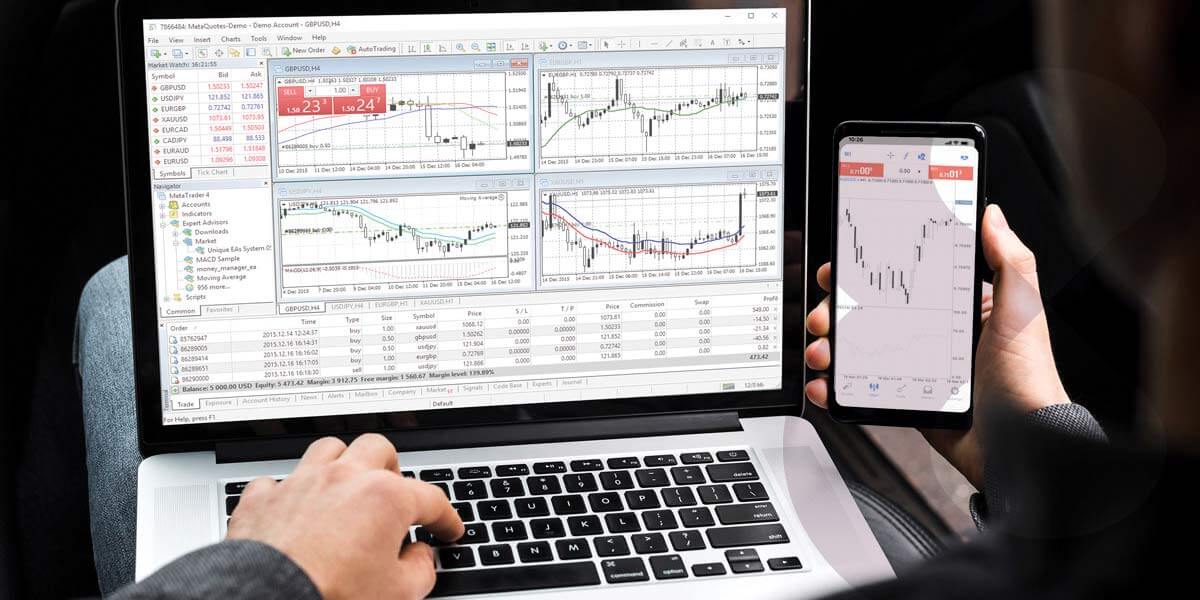A comprehensive guide to demo accounts in trading

In the ever-changing world of financial markets, developing trading skills is crucial for investors. It is in this context that demo trading accounts play a vital role. This article specifically focuses on the UK market and aims to delve into the purpose, benefits, and significance of demo trading accounts for traders at all levels of experience, whether they are novices or seasoned professionals. If you are looking to create a demo account with a broker, you should look for a reputable and regulated firm in the UK, which means that it should be licensed and authorized by the FCA.
Defining demo trading accounts
Demo trading accounts, also referred to as paper trading accounts, serve as invaluable tools for individuals looking to practice and enhance their trading skills in a risk-free environment. These accounts replicate real-time market conditions, enabling users to experience the ebb and flow of price movements and the dynamics of market conditions as if they were engaging in actual trading with real money.
By providing access to real-time market data, demo accounts ensure that users have access to the most up-to-date information on prices, trends, and market behavior. This allows traders to test their strategies and make informed decisions based on the current market scenario. The prices displayed in demo accounts mirror those of the live market, ensuring that users get a realistic sense of how different financial instruments perform.
How demo trading works
In demo trading accounts, traders are given simulated funds, also known as virtual capital. This means that they can make trades and try out different strategies without the fear of losing real money. It’s a risk-free environment that allows traders to gain experience and build confidence.
Within these demo accounts, users can execute market orders and limit orders. Market orders are used to buy or sell a financial instrument at the current market price, while limit orders allow traders to set a specific price at which they want to buy or sell an instrument. This functionality mirrors what traders would do in a live trading environment.
Why trade on demo?
The advantage of using a demo trading account is that it eliminates the financial risk associated with real trading. Users are not required to invest actual money, as these accounts provide them with virtual capital to use for trading purposes. This virtual capital allows traders to experiment with various trading strategies, test different approaches, and gain practical experience without the fear of incurring financial losses.
Moreover, demo trading accounts enable users to familiarize themselves with the trading platform offered by their chosen broker. These platforms often come equipped with a wide range of tools, indicators, and features designed to assist traders in making informed decisions. By using a demo account, individuals can navigate the platform, explore its functionalities, and gain a comprehensive understanding of how to execute trades, set stop-loss orders, and implement other trading strategies.
Limitations of trading on demo
While demo trading accounts offer numerous benefits, it’s important to be aware of their limitations. Here are a few factors to consider:
One significant drawback of demo trading is the absence of real emotions associated with risking and losing actual money. Traders may not experience the same psychological effects when trading with virtual capital as they would when trading with their own funds. This can result in a difference in decision-making and risk management strategies when transitioning to live trading.
Additionally, demo trading accounts aim to replicate real market conditions, but there may be discrepancies between the execution of trades in a demo account and the actual live market. Factors such as slippage, order fills, and liquidity may not accurately mirror the real trading environment. This can impact the outcomes and effectiveness of certain trading strategies.
There may also be psychological differences in approach. Traders may approach demo trading with a more relaxed mindset, knowing that there is no real financial risk involved. This can result in different behaviors and decision-making compared to live trading, where real money is at stake. Emotions such as fear, greed, and urgency may not be fully replicated in a demo environment, potentially affecting the trader’s performance when transitioning to live trading.
Final words
Demo trading accounts also play a significant role in enhancing traders’ understanding of the market. By observing how markets react to news, economic events, and other factors, individuals can develop a deeper comprehension of market dynamics and gain insights into the interplay between various market forces. This knowledge can prove invaluable when traders eventually transition to live trading with real capital regardless of the financial market.
Nevertheless, it is important to note that demo trading accounts can act as a valuable steppingstone towards live trading. As traders gain confidence and proficiency in a demo environment, they can gradually transition to live trading with real money. The experience gained through demo trading allows traders to implement effective risk management strategies and make informed decisions when dealing with actual financial investments.




